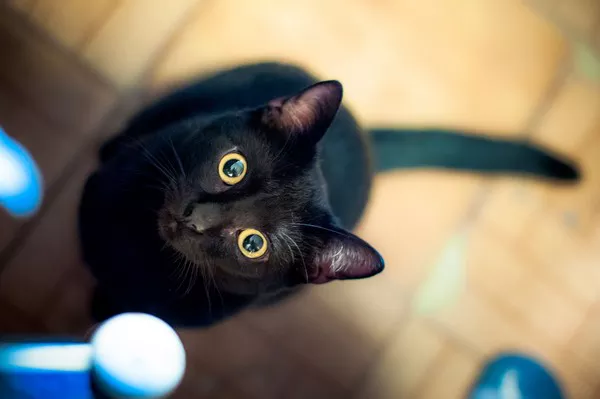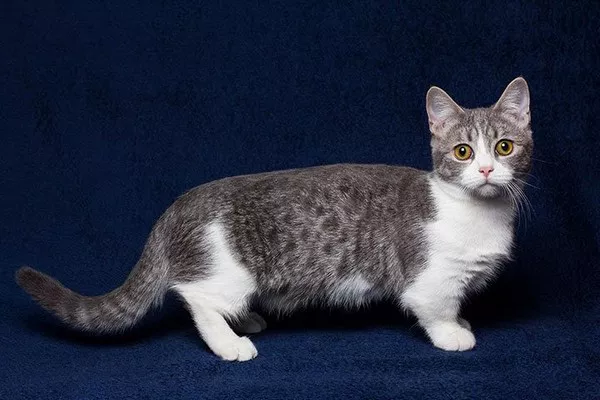Cats are known for their fastidious grooming habits, spending hours each day licking their fur to keep it clean and well-maintained. However, when it comes to being brushed by their human companions, many cats exhibit a range of unexpected behaviors, from ecstatic purring to frenzied biting and scratching. In this comprehensive article, we’ll explore the reasons behind this feline phenomenon and provide insights into how to make brushing a more enjoyable experience for both you and your furry friend.
The Sensory Experience of Brushing
One of the primary reasons cats may react so intensely to being brushed is the sensory experience it provides. A cat’s skin is covered in millions of nerve endings, making it highly sensitive to touch. The bristles of a brush stimulate these nerve endings, which can be pleasurable for some cats but overwhelming for others.
Additionally, cats have a heightened sense of touch, and the sensation of being brushed may feel different from their own grooming. The pressure and direction of the brushstrokes can also affect their reaction. Some cats may enjoy the firm, even pressure of a brush, while others prefer the lighter touch of their own tongue.
Grooming as a Social Interaction
In the wild, cats groom each other as a way to strengthen social bonds and establish trust. This behavior, known as allogrooming, is often seen in mother cats grooming their kittens or between mated pairs. When a human brushes a cat, it may be interpreted as a social interaction, and the cat’s reaction can depend on their level of trust and comfort with their owner.
Cats that are well-socialized and have a strong bond with their owners are more likely to enjoy being brushed, as they see it as a positive interaction. On the other hand, cats that are more independent or have had negative experiences with brushing may be more resistant to the activity.
Stress and Anxiety
For some cats, being brushed can be a stressful experience, triggering a fight-or-flight response. Cats are naturally wary of anything that could be a threat, and the sensation of being brushed may be perceived as a potential danger.
Stress and anxiety can manifest in various ways, such as hissing, growling, or attempting to escape. In extreme cases, a cat may become aggressive and try to bite or scratch the brush or the person holding it.
Factors that can contribute to a cat’s stress during brushing include:
- Unfamiliar surroundings or situations
- Negative past experiences with brushing
- Underlying health issues or pain
- Overstimulation or feeling trapped
- Enjoyment and Pleasure
Despite the potential for stress and anxiety, many cats do enjoy being brushed, especially when it’s done in a way that caters to their preferences. Cats that enjoy being brushed may exhibit signs of contentment, such as purring, kneading their paws, or leaning into the brush.
Brushing can be a pleasurable experience for cats for several reasons:
- It removes loose hair and helps prevent hairballs
- It distributes natural oils through the coat, keeping it healthy and shiny
- It feels good, similar to being groomed by another cat
- It strengthens the bond between the cat and their owner
Establishing a Positive Brushing Routine
To make brushing a more enjoyable experience for your cat, it’s essential to establish a positive routine. Start by introducing the brush gradually, allowing your cat to sniff and investigate it before attempting to brush them. Use treats and praise to reinforce positive associations with the brush.
When brushing, be gentle and patient, paying attention to your cat’s body language. If they seem uncomfortable or stressed, stop and try again another time. Gradually increase the duration of brushing sessions as your cat becomes more comfortable.
It’s also important to use the right brush for your cat’s coat type. Slicker brushes are great for removing loose hair and tangles, while bristle brushes are ideal for distributing natural oils. Rubber grooming gloves can also be an effective tool for cats that don’t enjoy traditional brushes.
See Also: How to Properly Care for a Sphynx Cat: A Comprehensive Guide
Addressing Underlying Issues
If your cat consistently reacts negatively to brushing, it’s essential to rule out any underlying health issues or pain. Cats may become more sensitive to touch when they are ill or injured, and brushing can exacerbate their discomfort.
If your cat seems to be in pain or is exhibiting other concerning symptoms, it’s best to consult with a veterinarian to rule out any medical issues. Once any health concerns have been addressed, you can work on reintroducing brushing using positive reinforcement techniques.
Conclusion
Cats’ reactions to being brushed can vary widely, from ecstatic purring to frenzied biting and scratching. Understanding the reasons behind these behaviors, from sensory experiences to social interactions and stress, can help owners create a more positive brushing routine for their feline friends. By using the right tools, being patient and gentle, and addressing any underlying issues, owners can make brushing a pleasant experience for both themselves and their cats. Remember, every cat is unique, and it may take some trial and error to find the brushing method that works best for your furry companion.
Related Topics
























